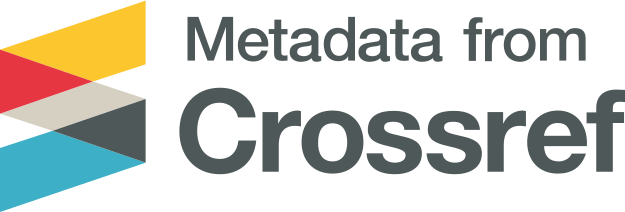Taktik Pajak: Mengeksplorasi Hubungan Corporate Risk, Book Tax Differences, Tax Avoidance, dan Manajemen Laba
DOI:
https://doi.org/10.35838/jrap.2023.010.02.25Keywords:
Book Tax Differences, Corporate Risk, Profit Management, Tax AvoidanceAbstract
This study aims to explore the impact of corporate risk and the differences between book-based income and tax income (Book Tax Differences) on tax avoidance, considering the moderating role of earnings management. The research method used is quantitative with descriptive analysis. The study population includes manufacturing companies listed on the Indonesia Stock Exchange for the period 2019-2021. The sampling technique was carried out through purposive sampling with a sample that met the criteria of 64 companies. The data used are secondary data in the form of financial statements over three (3) years of observation, analyzed using Moderated Regression Analysis (MRA) with Eviews 10 Software. The research results show that corporate risk and book tax differences significantly affect tax avoidance. Earnings management has been proven to negatively moderate the impact of corporate risk and book tax differences on tax avoidance. The implication of these findings suggests that risk management strategies and financial reporting transparency must be improved to reduce tax avoidance practices while ensuring tax compliance in an increasingly complex business environment.
Downloads
References
Bansal, M., Ali, A., & Choudhary, B. (2021). Real earnings management and stock returns: moderating role of cross-sectional effects. Asian Journal of Accounting Research, 6(3), 266-280.
Blaylock, B., Gaertner, F. B., & Shevlin, T. (2017). Book-tax conformity and capital structure. Review of Accounting Studies, 22, 903-932. https://doi.org/10.1007/s11142-017-9386-2
Blaylock, B., Shevlin, T., & Wilson, R. J. (2012). Tax avoidance, large positive temporary book-tax differences, and earnings persistence. The Accounting Review, 87(1), 91–120. https://doi.org/10.2308/accr-10158
Boachie, C., & Mensah, E. (2022). The effect of earnings management on firm performance: The moderating role of corporate governance quality. International Review of Financial Analysis, 83, 102270.
Chan, K. H., Lin, K. Z., Mo, P. L. L., & Wong, P. W. (2023). Does IFRS convergence improve earnings informativeness? An analysis from the book-tax tradeoff perspective. Accounting and Business Research, 53(2), 158-184. https://doi.org/10.1080/00014788.2021.1946764
Choi, J., & Park, H. (2022). Tax Avoidance, Tax Risk, and Corporate Governance: Evidence from Korea. Sustainability (Switzerland), 14(1), 469. https://doi.org/10.3390/su14010469
Coles, J. L., Daniel, N. D., & Naveen, L. (2006). Managerial incentives and risk-taking. Journal of Financial Economics, 79(2), 431–468.
Díez-Esteban, J. M., Farinha, J. B., & García-Gómez, C. D. (2019). Are religion and culture relevant for corporate risk-taking? International evidence. BRQ Business Research Quarterly, 22(1), 36-55. https://doi.org/10.1016/j.brq.2018.06.003
Efendi, R., Muawanah, U., & Setia, K. A. (2022). Stewardship Theory di antara hubungan corporate risk, kompensasi eksekutif, karakteristik eksekutif, dan kepemilikan saham pemerintah terhadap tax avoidance. Jurnal Ekonomi Modernisasi, 18(1), 86–100. https://doi.org/10.21067/jem.v18i1.6575
Frijns, B., Hubers, F., Kim, D., Roh, T. Y., & Xu, Y. (2022). National culture and corporate risk-taking around the world. Global Finance Journal, 52, 100710. https://doi.org/10.1016/j.gfj.2022.100710
Gerged, A. M., Albitar, K., & Al‐Haddad, L. (2023). Corporate environmental disclosure and earnings management—The moderating role of corporate governance structures. International Journal of Finance & Economics, 28(3), 2789-2810.
Gunadi. (2020). Investigasi, dan Penyidikan Pajak. Koperasi Pegawai Kantor Pusat Direktorat Jenderal Pajak.
Hanafi, U., & Harto, P. (2014). Analisis pengaruh kompensasi eksekutif, kepemilikan saham eksekutif dan preferensi risiko eksekutif terhadap penghindaran pajak perusahaan. Diponegoro Journal of Accounting, 3(2), 1162–1172.
Harnovinsah, H., & Mubarakah, S. (2016). Dampak Tax Accounting Choices Terhadap Tax Aggressive. Jurnal Akuntansi, 20(2), 267-284. https://doi.org/10.24912/ja.v20i2.58
Imen, F., & Anis, J. (2021). The moderating role of audit quality on the relationship between auditor reporting and earnings management: empirical evidence from Tunisia. EuroMed Journal of Business, 16(4), 416-430.
Jati, D. P., & Murwaningsari, E. (2020). Hubungan Book Tax Difference Terhadap Tax Avoidance dengan Manajemen Laba sebagai Variabel Moderasi. Jurnal Riset Akuntansi & Perpajakan (JRAP), 7(2), 203-218. https://doi.org/10.35838/jrap.v7i02.1651
Liyundira, F. S., Fidiyyah, A. A. N., & Juliasari, D. (2023). Influence of Corporate Governance, Corporate Risk, and Profitability on Tax Avoidance (Empirical Study of Companies Listed in the CGPI Index 2018-2020). International Journal of Accounting and Management Research, 4(1), 33-40. https://doi.org/10.30741/ijamr.v4i1.995
Pais, C., & Dias, C. A. (2022). The implications of book-tax conformity and tax change for the earnings management of Portuguese micro firms. Journal of International Accounting, Auditing and Taxation, 46, 100448. https://doi.org/10.1016/j.intaccaudtax.2022.100448
Pohan, C. A. (2018). Perpajakan Strategi Perencanaan Pajak dan bisnis (Revisi). PT. Gramedia Pustaka Utama.
Pradesa, H. A., Agustina, I., Sulistyan, R. B., & Rusdianti, I. S. (2023). Studi Empiris Tentang Kompetensi Auditor Dalam Melakukan Fungsi Audit Internal Pada Bank Pembiayaan Rakyat Syariah. JRAP (Jurnal Riset Akuntansi Dan Perpajakan), 10(1), 81-91. https://doi.org/10.35838/jrap.2023.010.01.08
Romadona, R., & Setiyorini, W. (2020). Pengaruh leverage, risiko perusahaan dan kepemilikan institusional terhadap tindakan penghindaran pajak (Studi empiris pada Perusahaan Manufaktur Sektor Logam yang terdaftar BEI Tahun 2014-2018). Jurnal Ilmiah Bisnis Dan Perpajakan (Bijak), 2(1), 63–72. https://doi.org/10.26905/j.bijak.v2i1.4307
Resmi, S. (2014). Perpajakan Teori Dan Kasus. Salemba Empat.
Retnaningdya, S. C., & Cahaya, F. R. (2021). Faktor-faktor yang mempengaruhi tax avoidance pada perusahaan manufaktursektor industri barang konsumsi yang terdaftar di bei periode 2014-2018. Proceeding of National Conference on Accounting & Finance, 3, 211–218. https://doi.org/10.20885/ncaf.vol3.art18
Rusdianti, I. S., Irmadariyani, R., & Kustono, A. S. (2022). E-Finance : Mitigation of Fraud Tendency in Indonesia. International Journal of Entrepreneurship and Business Development, 5(2), 574-582. https://doi.org/10.29138/ijebd.v5i3.1857
Sharma, V. D., Sharma, D. S., & Ananthanarayanan, U. (2011). Client importance and earnings management: The moderating role of audit committees. Auditing: A Journal of Practice & Theory, 30(3), 125-156.
Sial, M. S., Chunmei, Z., Khan, T., & Nguyen, V. K. (2018). Corporate social responsibility, firm performance and the moderating effect of earnings management in Chinese firms. Asia-Pacific Journal of Business Administration, 10(2/3), 184-199.
Suyanto, K. D., & Supramono Supramono. (2012). Likuiditas, Leverage, Komisaris Independen, Dan Manajemen Laba Terhadap Agresivitas Pajak Perusahaan. Jurnal Keuangan Dan Perbankan (Journal of Finance and Banking), 16(2), 167-177. https://doi.org/10.26905/jkdp.v16i2.1057
Tang, T. Y., & Firth, M. (2012). Earnings persistence and stock market reactions to the different information in book-tax differences: Evidence from China. The International Journal of Accounting, 47(3), 369-397. https://doi.org/10.1016/j.intacc.2012.07.004
Wildan, M. (2020). Indonesia Diperkirakan Rugi Rp69 Triliun Akibat Penghindaran Pajak.News.Ddtc.Co.Id.https://news.ddtc.co.id/indonesia-diperkirakan-rugi-rp69-triliun-akibat-penghindaran-pajak-25729
Wijaya, I. N. A., Prayogo, E., Handayani, R., & Prihartono, I. (2021). Corporate Risk, Cost Shifting, and Tax Avoidance. Jurnal Akuntansi, 13(2), 200-213. https://doi.org/10.28932/jam.v13i2.3553
Wulandari, S., Oktaviani, R. M., & Sunarto, S. (2023). Manajemen Laba, Transfer Pricing, Dan Penghindaran Pajak Sebelum Dan Pada Masa Pendemi Covid-19. Owner, 7(2), 1424–1433. https://doi.org/10.33395/owner.v7i2.1329
Downloads
Published
Issue
Section
License
Authors who publish with this journal agree to the following terms:
- Authors retain copyright and grant the journal right of first publication with the work simultaneously licensed under a Creative Commons Attribution-ShareAlike 4.0 International License that allows others to share the work with an acknowledgement of the works authorship and initial publication in this journal.
- Authors are able to enter into separate, additional contractual arrangements for the non-exclusive distribution of the journals published version of the work (e.g., post it to an institutional repository or publish it in a book), with an acknowledgement of its initial publication in this journal.
- Authors are permitted and encouraged to post their work online (e.g., in institutional repositories or on their website) prior to and during the submission process, as it can lead to productive exchanges, as well as earlier and greater citation of published work (See The Effect of Open Access).














